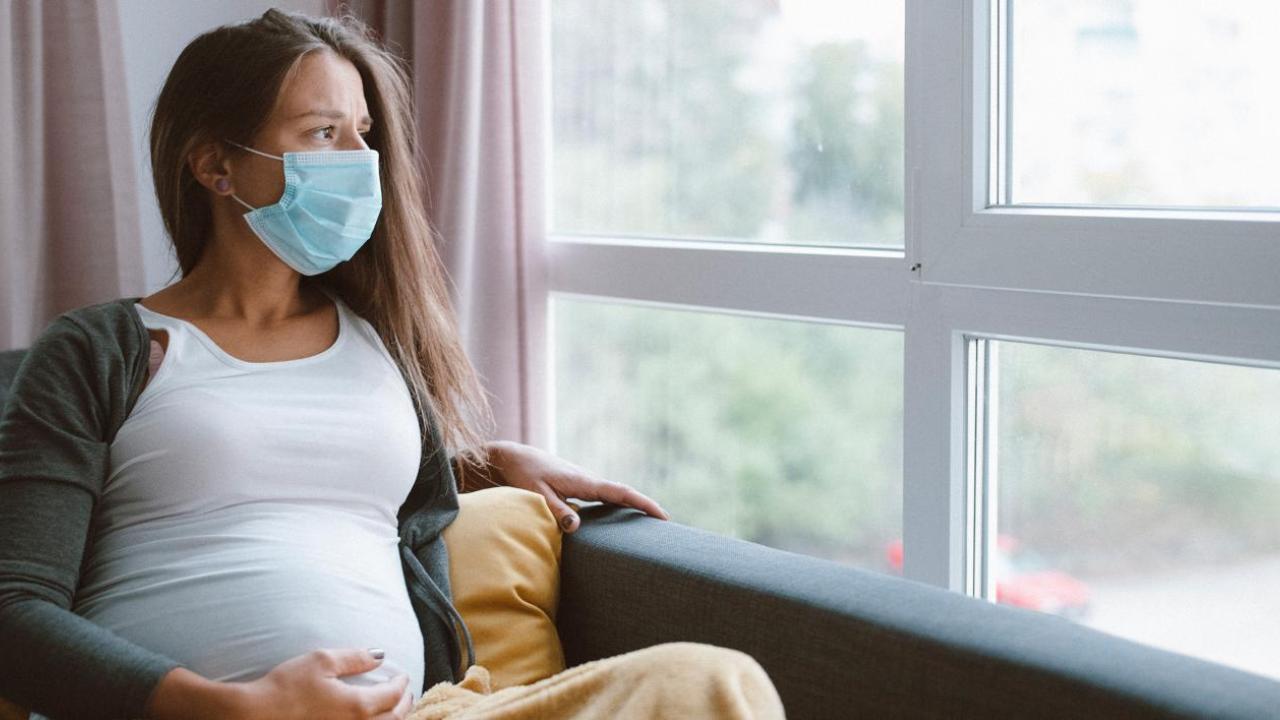
Pregnant, low-income New Yorkers living in neighborhoods with higher levels of air pollution were 60 percent more likely to test positive for COVID-19, according to a new study led by scientists at Columbia University Mailman School of Public Health. Study results appear in the American Journal of Epidemiology.
The researchers examined the relationship between 3,318 pregnant individuals’ COVID-19 test results and their long-term exposure to fine particulate matter (PM2.5). COVID testing was done for everyone at the time of delivery at Columbia University Irving Medical Center, March–December 2020. Exposure estimates were based on location-specific air pollution data between 2018 and 2019 at participant residences. Results were adjusted to account for individual- and neighborhood-level socioeconomic status.
They found no association between PM2.5 and ever testing positive for COVID-19 for everyone in the study group. However, odds of testing positive were 60 percent higher for each 1 μg/m3 increase in long-term PM2.5 among those using Medicaid health coverage for low-income Americans. While only 22 percent of those testing positive reported symptoms, 69 percent of symptomatic individuals used Medicaid.
Pregnant persons with COVID-19 are more likely to experience significant respiratory morbidity and more likely to die than non-pregnant persons with COVID-19. Pregnant persons with COVID-19 are also more likely to experience adverse pregnancy outcomes, including preterm delivery, preeclampsia, and possibly stillbirth. Exposure to PM2.5 during pregnancy has been shown to increase risk of preterm birth, as well as delivery of a low-birth-weight neonate.
Large-scale epidemiologic studies reveal consistent associations between higher long-term PM2.5 concentrations and increased risk of acute respiratory infection in the general population.
“COVID-19 has exposed and exacerbated existing health disparities. Low-income pregnant people may have been more likely to test positive for the virus and be symptomatic due to more exposure on the job or inability to isolate, as well as heightened exposure to a range of environmental pollutants,” says first author Joan Casey, PhD, assistant professor of environmental health sciences at Columbia Mailman School of Public Health.
Study co-authors include Marianthi-Anna Kioumourtzoglou, Jeffrey Shaman, Sasikiran Kandula of Columbia Mailman; Andreas Neophytou of Colorado State University; Elizabeth L. Ogburn, Kristin C. Darwin, and Jeanne S. Sheffield of Johns Hopkins University; and Cynthia Gyamfi-Bannerman, University of California San Diego School of Medicine.
The research was supported by the National Institute of Environmental Health Sciences (grants ES027023 and ES009089).